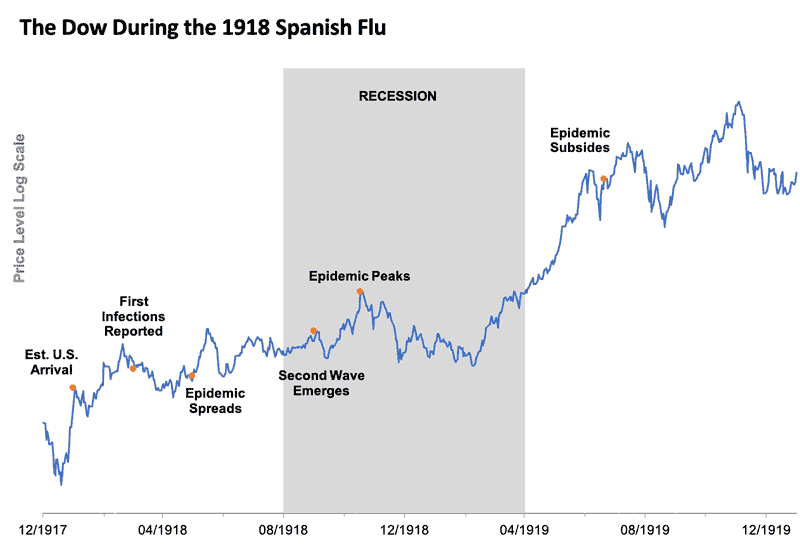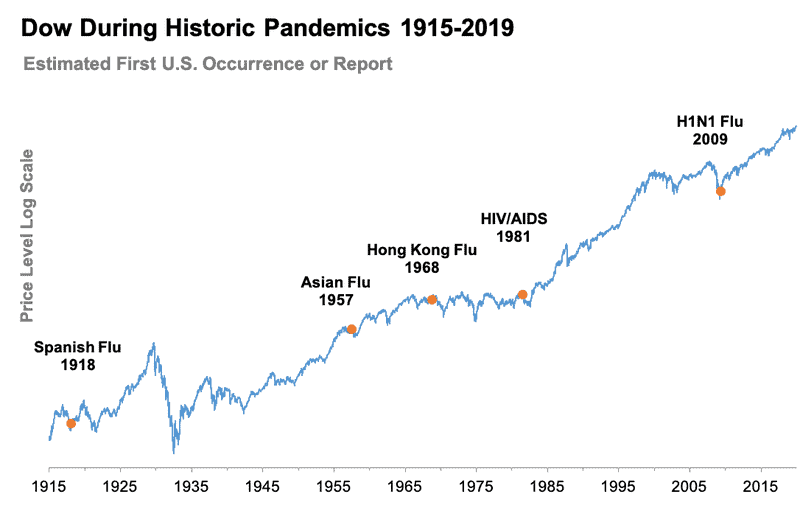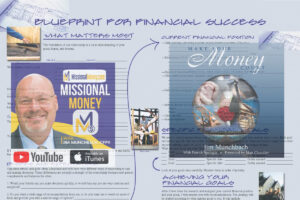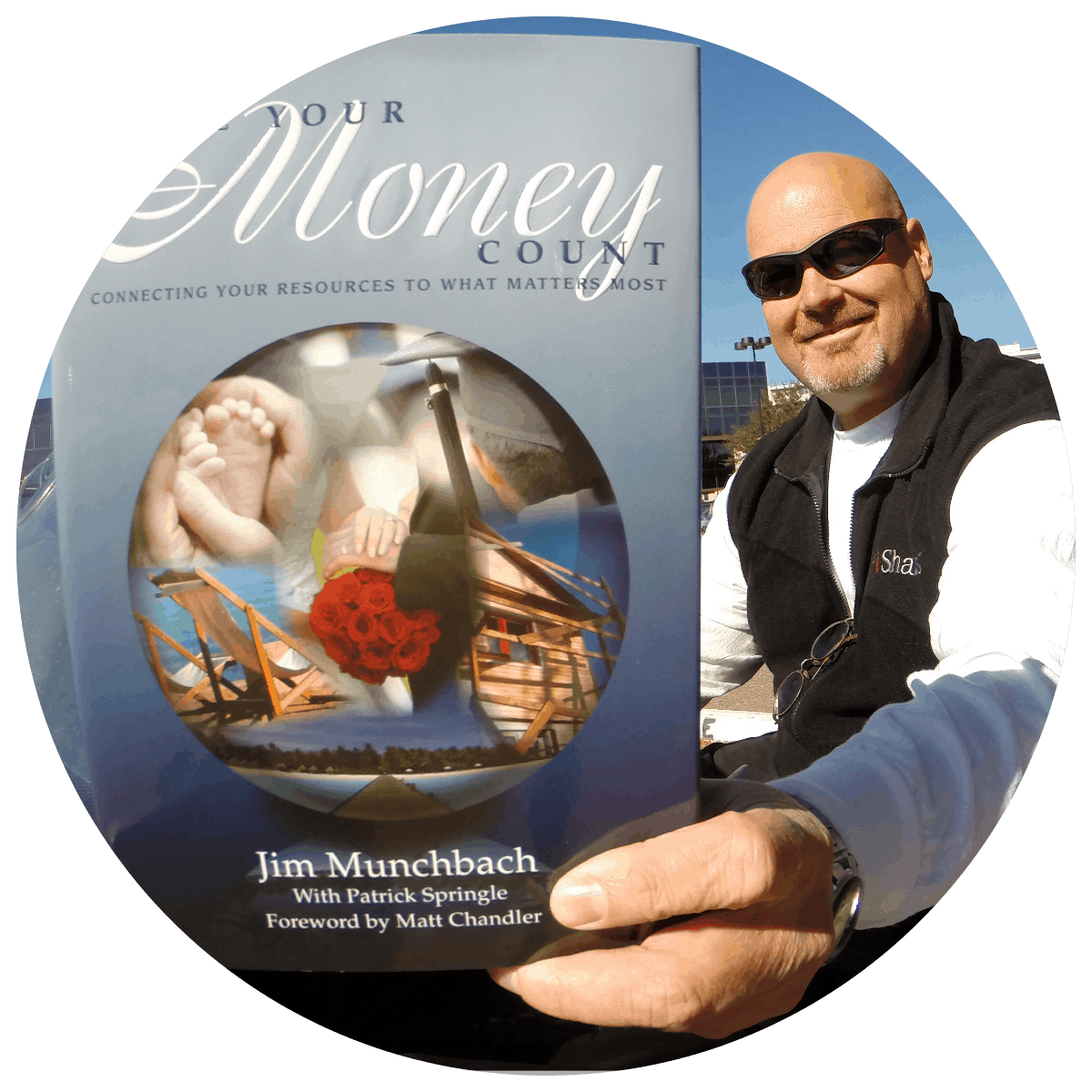The pandemic is here and we’ve found ourselves in bear country without enough toilet paper.

When markets fall as rapidly as they have over the last few weeks and the country is going into lockdown, it’s reasonable to be worried about a situation that seems unprecedented.
The last outbreak to achieve pandemic status was the H1N1 Swine flu, which hit U.S. soil in April 2009.1 You might hardly remember it because markets were on a tear after bottoming out in March 2009 and the outbreak barely registered on investors.
But, some say that COVID-19 is nothing like recent epidemics.
So let’s take a look at one of history’s worst pandemics: The 1918 Spanish Flu. Nearly one-third of the world’s population contracted the disease and more than 50 million died in just 15 months.2
Despite the human toll, the Dow actually rose during the 1918 Spanish Flu pandemic.

Chart source: Source: MacroTrends, CDC, NIH, NBER
The Spanish Flu led to quarantines, labor shortages, and contributed to a short recession in the aftermath of WWI.3 But, while markets were extremely volatile during 1918, they returned to an upward trajectory by early 1919 before the pandemic was officially over.
In spite of the business interruptions, the Spanish Flu only caused an estimated 0.5% hit to annual GDP.4
History shows us that pandemics are not that uncommon, and their effect on markets is typically short-lived.

Chart source: MacroTrends, CDC
Historically, pandemics have struck the U.S. regularly over the last 100 years. Though outbreaks sometimes precipitated or accompanied market declines, stocks typically regained ground quickly as the epidemic subsided.
The past can’t predict the future, but it’s a good reminder that pandemics are not the only driver of market movements. Economic fundamentals, business health, and future earnings all drive long-term market trends.
My goal isn't to downplay the seriousness of the outbreak. We are in the exponential growth period of the virus and it's not going away soon. However, markets are running on fear and uncertainty more than rational assessments of the future.
What should you do right now?
- Don’t buy or sell based on headlines. There’s a lot of fear, speculation, and uncertainty feeding market volatility.
- Focus on staying healthy and taking sensible precautions to keep yourself and your family safe, especially if you have loved ones who are at higher risk of complications from the virus.
- Show the people around you some extra kindness in these days of anxiety. Let’s be grateful for the medical professionals on the front lines and the hard-working folks keeping stores stocked.
- Remember that we as a nation have been here before, and we have the resources we need to get through this.
We’re watching markets so you don’t have to.
When markets fall off a cliff and economic upheaval is on the horizon, professional advice is one of the best tools you can have to cut through the noise and make rational decisions.
My team and I are closely monitoring leading indicators, research releases, and market movements. We’re looking after your portfolio, seeking out opportunities, and making plans for next steps. We’ll be in touch if updates are needed.
If you need a pep talk or to discuss your investment strategy, please reach out by phone to (832) 895-1700 or just click here to book an appointment.



